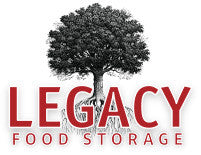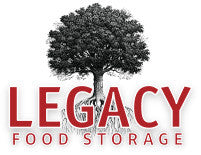
Are You Planning to Be a Survivor or a Victim?
As a self-proclaimed prepper and professional resiliency planner, I have experienced many ‘told you so’ events over the past ten years. The peace of mind of knowing you and your family can not only survive but thrive during the next life impact is empowering. Just last month, I took the family on a drive to see how bad the wildfires were. What should have been a two-hour drive past them and back turned into an 18-hour delay. A delay I could have handled, but the detour took us through an already crowded vacation town, with no place to stay. Restaurants were experiencing 4-hour delays, and it was a Sunday night, so everything was closing, too. Highway patrol also informed me that a few of the shorter detours would be closed for the night.
I was forced to find an alternate route, around the mountains, across the state line, back south and then return home from the southern path. However, with no plans of being gone for so long, it was already approaching dinner time, and the family was hungry; no restaurants, no hotel, no preparation so I thought. We decided to drive a little way out of town on the route we selected, knowing it had some very scenic spots. Stopped at one overlook and pulled out my emergency bag, set up the little stove and 20 minutes later, after boiling water, my family and I were eating a nutritious Legacy meal and watching the sunset. I even took a picture and texted it to a few friends with the caption, “This is what changing your perspective looks like!”
One family driving by in the same predicament we were in stopped to use the outhouse. The father came by and said, “you sure are prepared! My kids are griping about being hungry and it’s going to be a long drive before we find anything. Having plenty, I offered them to join us.
Plan for the Bumps
One does not have to be a ‘full-blown prepper’ but can be pragmatic. COVID type of events are very rare, but what about power outages leaving you unable to cook or communicate? Maybe a traffic accident delaying your return home on a holiday adventure for hours or days? Perhaps it is just the prediction of a Hurricane heading toward your region or a wildfire like my experience? All of these common events can impact your life if you do not have a plan.
What do I need to plan for, and for how long? FEMA recommends that “being prepared means having your own food, water and other supplies to last for at least 72 hours” (https://www.fema.gov/press-release/20210318/how-build-kit-emergencies). That sounds like a start to a good plan, but I would recommend something a little different. FEMA and other sites have elaborate lists of what you could need, but what is practical for you may be quite different.
I try to plan for situations to initiate wherever you are, meaning you could try to have supplies for a few situations. Having these supplies will give you peace of mind, knowing that you are prepared for whatever may come your way. Most events fall into three categories:
- Shelter in Place/your Home: I recommend maintaining at least two weeks of food and water at your home. Long-term storage of food is a great solution. However, water may be a challenge due to storage space. So, having the ability to clean untreated water is sufficient.
- Evacuations: It is always a great idea to have a ‘go-bag’ with food and other emergency supplies. You can never predict how long you may have to be evacuated or what local resources (friends, Red Cross etc.) may be available in the immediate need. It is also a good idea to consider some cash and materials to prepare your emergency food too.
- Bumps in the Road: What do I mean by bumps in the road? Well, they are those events no one could have predicted, but they can cause some delays in your day's events. So, sort of like the go-bag, perhaps carry some resources in your car so that when you need to eat, and there are no accessible resources, you have some food, water and the ability to prepare it.
Real-Life Benefits:
Knowing you can thrive is empowering. Survival is a choice. A little forethought and not a lot of money can go a long way, especially when everyone else is trying to scramble to make it through the event. You can continue to think it will never happen to you, and I hope it does not, but it can never happen if you are prepared.
Future Posts:
In the future, I will be focusing more on what your company can do to ensure their resiliency and yours. These posts will ensure staff is dedicated, knowing their employer cares about their employees, their families and the community. These efforts will be filled with action, not empty statements. Ultimately, they will save money, which is the bottom line all companies prioritize.
James Knox is a resiliency expert with an innovative spirit who thrives when building meaningful solutions to various daily problems in the corporate world. He is an avid outdoorsman, loving to go extreme rock crawling, fishing and hunting. As a survivalist, James has learned from necessity how to prepare for life’s bumps in the road and thrive with practical and sensible solutions, supporting his family's self-sustaining lifestyle.
Tags
- All
- 25 year food
- 25 year shelf life food
- 72 hour kit
- Best food storage types
- Best long-term food storage
- Blizzard preparedness
- Budgeting
- canning
- Certified GMO-free Emergency foods
- Certified GMO-free foods
- Coffee
- Comparison of emergency food methods
- Composting tips
- Dangers of genetically modified foods
- dehydrated food
- Edible Wild Plants
- emergcy preparedness
- Emergency Cooking
- Emergency Food
- Emergency food Christmas gifts
- emergency food storage
- Emergency Food Supply
- Emergency food supply recommendations
- Emergency Planning
- Emergency Preparedness
- Emergency preparedness advice
- emergency preparednesss
- Emergency Supplies
- Emergency supplies checklist
- Emergency Survival
- emergency survival gear
- Emergency survival kit checklist
- Emergency Survival skills
- exercise
- Family emergency preparedness
- Family emergency preparedness plan
- Family Preparedness
- Food Storage
- Food storage 25 year shelf life
- Food storage amounts
- Food storage Christmas
- Food storage containers long term
- Food Storage Secrets
- Food storage serving size
- Food storage types compared
- freeze dried food
- Freeze dried food storage
- freeze dried meats
- Freeze-dried emergency food storage
- Fruit Trees
- Gardening
- Getting Started
- Gluten-free food Storage
- Gourmet emergency food
- Healthy food storage
- How much emergency food to store
- Improved emergency preparedness
- Jared Markin
- Jared Matkin
- Legacy Premium
- Lessons learned from Hurricane Sandy
- Lessons learned from natural disasters
- long-term food storage
- Long-term Food Storage Guidelines
- Long-term Food Storage tips
- Long-term water storage
- Mental Emergency Preparedness
- Mental toughness
- Money-saving tips
- Natural disaster planning
- Natural Disasters
- Perfect Christmas gifts
- Pet Emergency preparedness checklist
- Pet Emergency preparedness kit
- Pet Emergency Survival tips
- Pets and Emergency Preparedness
- Plant Foraging
- portable solar panels
- portable solar power
- portable water filters
- protein drinks
- Risk of genetic modification
- Seed saving and storage
- Seed saving guide
- Self-reliance
- Self-reliant practices
- Shelf Life
- Solar Cooking
- Solar Ovens
- Special Dietary needs
- Stranded in a car in a blizzard
- Survival food
- Survival Gear
- survival kit
- Survival kits
- Survival Ovens
- Survival Skills
- survivalist gear
- suvival kit
- Tree Pruning tips
- Tree Trimming basics
- unique ideas
- water bottle with filter
- water filter
- water filter straw
- water filters
- Water Filtration
- water pitcher with filter
- water pitchers with filters
- Water purification
- Wild Food Foraging
- Winter composting
- Winter driving
- Winter preparedness tips
- Winter storm preparedness tips
- Winter Survival







